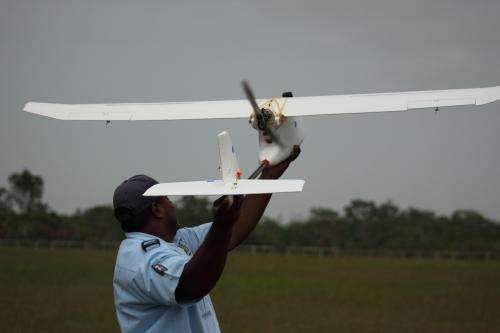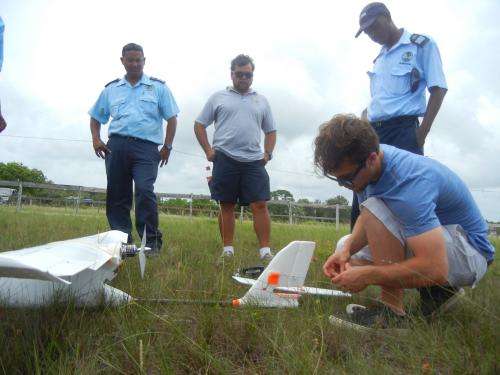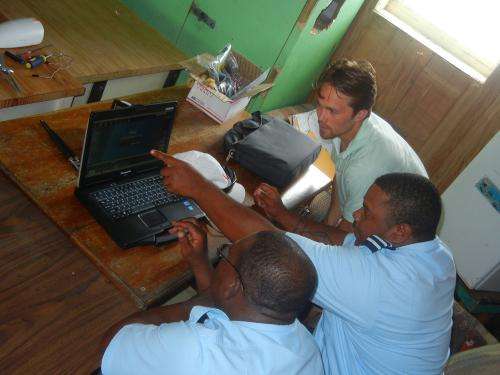Safeguarding Belize's Barrier Reef with conservation drones

Seeking to gain a high-tech edge over illegal fishers, the Government of Belize will use "eyes in the sky" to enforce fishing regulations in the biodiverse Glover's Reef Marine Reserve and other reef systems in what is the first use of conservation drones to monitor marine protected areas.
With technical assistance from the Wildlife Conservation Society, the Belize Fisheries Department initiated a new monitoring program using unmanned aerial vehicles (i.e. conservation drones) to curtail unsustainable levels of illegal fishing. Besides coastal development, unregulated and unreported fishing are some of the largest threats to Belize's fishing industry.
"Belize has been a leader in the establishment of marine protected areas, including the world-famous Glover's Reef Marine Reserve, but fishing regulations are difficult to enforce on the open sea," said Julio Maaz, Communities Fisheries Coordinator for WCS's Marine Program in Belize. "Drones offer a means of improving the rate of detection of illegal activities at a fraction of the cost required for patrol vessels."
Conservation drones also are being used for wildlife monitoring and for support in the enforcement of terrestrial protected areas. The unmanned aerial vehicles can fly autonomously for over an hour at a time with a range of more than 50 kilometers, and are capable of taking high-resolution photographs and video.

Program participants from WCS, the Belize Fisheries Department, and Conservation Drones.org fully implemented the drone program in early June, following testing that began last July. The drones will enable government officials to remotely locate fishing vessels illegally operating in marine protected areas or in areas with seasonal closures. Once located, patrol vessels can conduct seagoing searches more efficiently.
Drones will also allow government officials to monitor for illegal activities in coastal areas, which are often hidden from view by mangrove forests. Fishers have been known to hide illegal conch catches in these coastal forests.
WCS has also provided key technical support for the government's revision of the National Fisheries Act, expected to be passed later this year. The act includes numerous improvements for the country's legal framework for fisheries management, including rights-based reform and an adherence to ecosystem-based standards.

"This exciting new enforcement tool will help the government and local communities protect their most valuable assets—the fisheries and coral reefs of Belize's coastal waters," said Dr. Caleb McClennen, Executive Director of WCS Marine Conservation. "The world's oceans are in dire need of low cost innovations for improving the cost efficiency and effectiveness of enforcement efforts. This represents an exciting pilot program for Belize, the wider Caribbean, and nearshore marine parks and fisheries around the world."
Provided by Wildlife Conservation Society


















